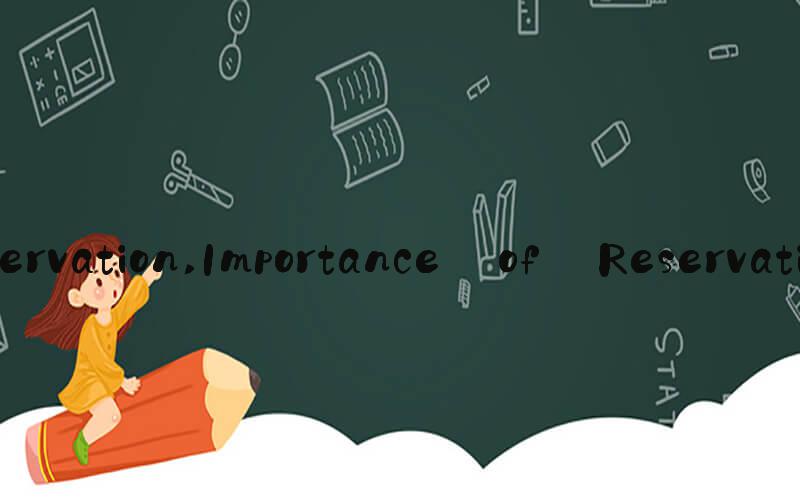 What is a Reservation?
What is a Reservation?A reservation refers to the act of pre-booking a service or an item before the actual date of its use. It is a reservation that allows a customer to reserve a spot, table, or hotel room at a specified time and date. Reservations are prevalent in the hospitality and travel industry, wherein customers can book flights, hotels, or other travel-related services.
Importance of ReservationsReservations are critical for both businesses and customers. For customers, reservations offer convenience and peace of mind, ensuring that the service or item is available for use at the specific time and date. It helps eliminate uncertainty and saves time. On the other hand, reservations enable businesses to manage their inventory, adjust their staffing requirements, and accurately predict their revenue streams. It also provides an opportunity to create a positive impression on the customers and build long-term relationships.
Types of ReservationsThere are different types of reservations based on their use:
Hotel Reservations: Hotel reservations can be made via phone, email, or online. Customers can select the dates they plan to stay, the type of room, and the number of occupants. Online travel agencies like Booking.com and Expedia have made it easy for customers to compare hotel prices and book stays conveniently.
Flight Reservations: Flight reservations allow customers to book a seat on an airplane on specific dates and times. Most airlines have a website or an app that offers customers the ability to search prices, routes, and schedules before booking their flights. Airlines also provide various seating options as per the customer's budget and requirements.
Restaurant Reservations: Restaurant reservations allow customers to reserve tables for a particular date and time. This service is critical for restaurants that receive many customers daily as it helps them prepare and manage their staffing needs. Customers can call the restaurant or use apps like OpenTable, which provide an easy platform for reserving tables.
Event Reservations: Event reservations allow customers to book a spot or seat at an event. This service is crucial as it helps event organizers make sound decisions about the event's catering, seating, and entertainment options. Online ticketing platforms like Eventbrite and BookMyShow are popular tools for event reservations and ticketing.
Pros and Cons of ReservationsLike any other service, reservations have their share of advantages and disadvantages.
Pros: Reservations offer convenience, certainty, and peace of mind to both customers and businesses. It helps businesses manage their inventory and revenue better and provides an opportunity to personalize customer experience. For customers, it helps eliminate uncertainty, save time, and get the best prices for their purchase.
Cons: Reservations can sometimes be inconvenient, especially if the customer needs to cancel or modify their reservation. They might also limit spontaneity or flexibility by forcing customers to commit to a time and date. Additionally, if a customer fails to show up for their reservation, it can result in a loss of revenue for the business and reduced availability for other customers.
ConclusionIn summary, reservations provide a critical service that benefits both businesses and customers. Whether it's a hotel room, a flight, or a restaurant table, reservations allow businesses to manage their inventory and revenue better, while providing certainty and convenience to customers. As technology continues to advance, the process of making reservations has become more accessible, more streamlined, and more user-friendly. Today, making a reservation is only a few clicks away for most customers, and businesses that don't provide this option risk losing customers to competitors who do.
